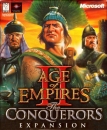Why aren't they listening to the people? Because the people can't be trusted. This is a republic not a democracy similar to that of the Greek city-states. If the founding fathers had ever thought the masses would know what was right for the nation as a whole they would have made a pure democracy or a republic where the people elect all decisions. Instead our Constitution tries every way possible to keep the masses from deciding things in the country, although a lot of that has been overturned.
As Madison implied in Federalist #10, the masses can't be left to decide for the entire nation, or what he coined as the violence of factions. People can be easily manipulated and controlled and therefore they shouldn't be paid attention too.
Now to this exact position, who knows if the people are right. All I know, James Madison would say who really gives a shit. How many of those people actually came to that decision with anyone but their own self-interests at mind. Maybe a few, a dozen, ONE.
This all goes back to the trustee versus delegate argument. In a republic, should the representatives do exactly what the populous that voted them in wants (delegate) or were they voted in to use their best judgment on decisions (trustee). I think in this country we seem to see it more as a delegate position, but I doubt the founding fathers would have seen that... or maybe they would have if only the RIGHT people were voting.
So when discussing this, I obviously don't agree with most of the bill. However, I also don't think the masses should be the deciding factor because I don't think any of them have intentions beyond self-interest. Hell if I were a poltician, despite being a strong libertarian, I'm not going to let the violence of factions affect my decision. I would make a decisions that is in the best interest of preserving rights and maintaining the well-being of the nation and its citizens.
I guess one of the major flaws of a democratic government is how involved the people become. If they aren't well educated or knowledgeable in the matters then they aren't capable of running a government. Same problem comes with a republic as if they aren't capable of making the decisions how are they capable of choosing the right people to run the government (which we all know isn't done well). Guess the only way a democracy can work is the idea of checks and balances not on just government but the people's involvement as well. Despite most Americans being manipulated to think democracy is the greatest thing ever, its quite obvious it has numerous flaws that we have to take into account just like any other form of government.
Existing User Log In
New User Registration
Register for a free account to gain full access to the VGChartz Network and join our thriving community.
































































